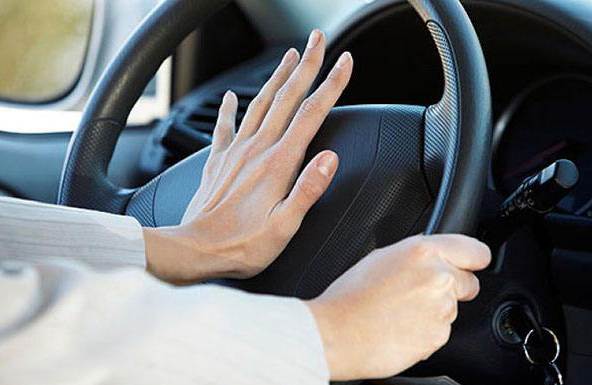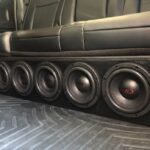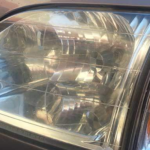How Heavy Horns Impact’s Your Vehicles? When it comes to vehicles, safety is a paramount concern. A crucial aspect of safety is having a properly functioning horn that can effectively communicate with other road users. However, there is an ongoing debate about whether heavy horns can negatively affect the battery life of cars and bikes. So, continuing the streak of talking about automobile topics, today we will explore the potential impact heavy horns can have on vehicle batteries and why you should consider alternatives.
Well, heavy horns on vehicles can have a significant impact on both the vehicle itself and the environment. From a vehicle perspective, the constant and excessive use of heavy horns can lead to mechanical wear and tear, potentially causing damage to the horn mechanism or electrical system over time. Moreover, the loud and piercing sound generated by heavy horns can contribute to noise pollution, negatively affecting the environment and human health. Excessive noise pollution can disrupt natural habitats, disturb wildlife, and cause stress and annoyance to people in the vicinity. It is crucial for drivers to use horns responsibly and sparingly to minimize their impact on both the vehicle and the environment.
Do Heavy Horns Impact Your Vehicle’s Battery?
Heavy horns can indeed have an impact on your vehicle’s battery. The electrical system of a car is designed to handle the standard electrical load, including the power required for lights, radio, and other components. However, when you install heavy horns that draw a significant amount of power, it can strain the battery and alternator. Here are some basic points that will help you understand the question.
- Power Consumption: Heavy horns typically require a higher power supply to produce louder sounds. And continuous usage of heavy horns, particularly in heavy traffic or for extended periods, can put a strain on the battery and contribute to its depletion.
- Increased Load: Vehicle batteries are designed to power essential electrical components such as lights, ignition systems, and other vital functions. This increased load can impact the battery’s performance and potentially shorten its lifespan.
- Voltage Fluctuations: Heavy horns can cause voltage fluctuations due to their higher power requirements. These fluctuations can disrupt the electrical system’s stability, leading to potential issues with other components connected to the same circuit.
The constant high power demand from the heavy horns may cause the battery to drain more quickly, especially if the engine is off and the horns are used extensively. It is advisable to ensure that your vehicle’s electrical system is capable of handling the additional load before installing heavy horns, and it’s essential to regularly check the battery’s health to avoid unexpected issues or failures.
Why You Should Avoid Heavy Horns?
Well, when it comes to talking about horns then you must have seen people going towards heavy horns that make much louder noises. But do you know that using such horns in your vehicles whether it is a car or bike, harms nature and your own vehicle as well? Below are the points you should know before getting a louder horn.
- Battery Longevity: By opting for heavy horns, you risk compromising your battery’s longevity. Overburdening the battery with excessive power demands can reduce its lifespan, potentially leading to unexpected breakdowns or the need for premature replacements. Considering the costs associated with battery replacement, it is wise to avoid unnecessary strain.
- Maintenance Costs: A weak or deteriorated battery can affect the overall performance of your vehicle. In addition to potential battery replacement costs, you may need to invest in repairs or servicing due to electrical system malfunctions caused by heavy horns. Opting for alternative horn options can help you avoid these additional maintenance expenses.
- Environmental Impact: Excessive power consumption not only affects your vehicle but also has a broader environmental impact. By reducing power consumption through lighter horns or alternative warning systems, you can contribute to a greener and more sustainable future.
Alternatives to Heavy Horns!
Now, talking about the options that you can adopt instead of using a louder horn, then here are the 3 major options that can be used instead of using a louder horn. However, above you have read about how it impacts your vehicle’s battery and also impacts the surroundings.
- Dual-Tone Horns: Dual-tone horns provide a balance between loudness and power consumption. They produce a strong sound while using less energy compared to heavy horns. These horns are a popular choice among vehicle owners looking for a reliable alternative that minimizes the strain on their batteries.
- Electronic Horns: Electronic horns use integrated circuits to generate sound. They are lightweight and efficient, providing a loud and clear sound without overburdening the battery. Electronic horns are also known for their durability and resistance to environmental factors, making them a long-lasting alternative.
- Vehicle-Specific Horns: Some vehicles come equipped with factory-fitted horns that are specifically designed for optimal performance without compromising the battery. These horns are often calibrated to match the electrical system’s specifications and can serve as an excellent alternative to heavy aftermarket horns.
While heavy horns may seem appealing due to their loudness, they can have adverse effects on your vehicle’s battery and electrical system. The increased power consumption added load, and voltage fluctuations can contribute to battery deterioration and reduce its lifespan. By opting for alternative horn options such as dual-tone horns, electronic horns, or vehicle-specific horns, you can maintain a balance between safety and battery longevity. Remember, prioritizing the health of your vehicle’s battery is essential for a hassle-free driving experience and cost-effective maintenance in the long run.






GIPHY App Key not set. Please check settings